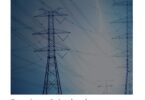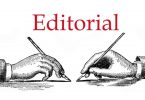by Fred Steinhauser, OMICRON electronics GmbH, Austria

There are many reasons why to engage with standardization. As far as individual people are involved, they are not only doing this because it is their job. They contribute a lot of passion and idealistic goals.
The motivations for engaging in standardization depend very much on who is doing it. But whoever does it, it is not purely for money.
For the established standardization organizations, it is their genuine purpose of existence to create and maintain standards and for many of them it is also their source of income. But we can assume that these organizations do not primarily exist to make profits, but for doing something good for the fields of expertise they serve. And even within these organizations, many positions are occupied by people who are not directly paid by the standardization organization, e.g. those who contribute in the national mirror committees.
For corporations, there must be rational reasons which can be justified economically. As the benefits are not easily expressed in numbers, an involvement will be motivated more strategically. The goals can be manifold. There is the purpose to influence or even control the technical content of the standard. Then it is the aim of being among the first to know what is going on in a specific field of expertise, since its future is often heavily influenced by upcoming standards. And beyond the actual scope of a standard, it is desirable to be connected to the network of experts working on such matters. The contribution of the corporations, which are by the way mostly vendors who intend to create products based on standards, is substantial. They appoint employees who will dedicate paid working time, and they also cover the often-considerable travel costs. These appointed employees have skills which are also sought after within the company, so donating their time to standardization adds opportunity costs. And many corporations dedicate essential resources by hosting workgroup meetings. Thus, it is sometimes noticed as being embarrassing that corporations involved in such a manner still have to pay for the standards if they want to obtain official copies.
When it comes to IEC 61850, the sparse involvement of utilities is to complain. Ever so often, a sentence like “if we only had representatives from utilities in the room who could tell us their wishes and intentions firsthand” is heard in workgroup meetings. The vendors must make their best guess what their customers would need. Nevertheless, it has also happened that utility people took the efforts to review the documents, sporadically making appearances in front of the standardization groups, telling them that this is no good. One can imagine how well this is received.
Most individuals engaging in standardization are appointed by their employers to represent their employer’s interests. For most of them, this will match their preferences and intentions. We can assume that they are volunteers in a sense, as most of them could have a decent life in the companies they work for without engaging in standardization. And even though standardization is then part of their job, some related work adds on top. Many show an idealistic intent beyond their employer’s interests, namely, to do things well and lasting.
The individuals also manage the social interaction of the actual standardization work. Humans working for competing companies or just have competing interests must agree on a common result. This is a challenge on its own.
But the social aspect is possibly also one of the most rewarding ones for individuals. You get to know many smart and nice people and sometimes friendships emerge from this that last beyond the release of the standards.
Biography:

Fred Steinhauser studied Electrical Engineering at the Vienna University of Technology, where he obtained his diploma in 1986 and received a Dr. of Technical Sciences in 1991. He joined OMICRON and worked on several aspects of testing power system protection. Since 2000 he worked as a product manager with a focus on power utility communication. Since 2014 he is active within the Power Utility Communication business of OMICRON, focusing on Digital Substations and serving as an IEC 61850 expert. Fred is a member of WG10 in the TC57 of the IEC and contributes to IEC 61850. He is one of the main authors of the UCA Implementation Guideline for Sampled Values (9-2LE). Within TC95, he contributes to IEC 61850 related topics. As a member of CIGRÉ he is active within the scope of SC D2 and SC B5. He also contributed to the synchrophasor standard IEEE C37.118.








